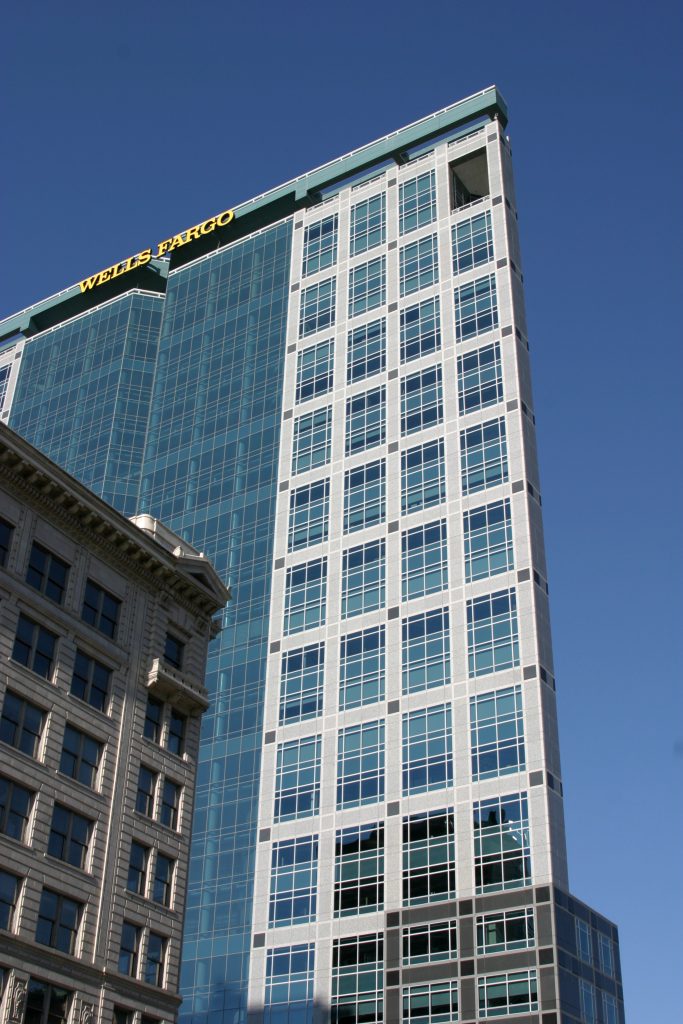 Do you ever wonder what happens if you get into an accident in a company vehicle when on your lunch break? Whether it is using the company car to pick up food or a quick stop at the mall to grab a birthday gift, most of us have had the thought cross our minds. A recent State of Louisiana First Circuit Court of Appeal (“the Court”) case dealt with this very issue.
Do you ever wonder what happens if you get into an accident in a company vehicle when on your lunch break? Whether it is using the company car to pick up food or a quick stop at the mall to grab a birthday gift, most of us have had the thought cross our minds. A recent State of Louisiana First Circuit Court of Appeal (“the Court”) case dealt with this very issue.
Melvin Sharp and his work supervisor drove to a bank to cash their paychecks on their lunch break in Prairieville, Louisiana. Sharp and his supervisor were both employees of Ellis Electric Company (“Ellis Electric”) and used a company-owned truck to run the errand. In the bank parking lot, another vehicle hit Sharp and his supervisor in the company-owned truck. Sharp was not driving the truck at the time, his manager was.
Sharp brought a lawsuit against his co-passenger and work supervisor, as well as Ellis Electric and their liability insurance provider, United Fire, seeking compensation for injuries from the car accident. Ellis Electric and United Fire’s attorneys motioned for summary judgment, stating Sharp was in the course and scope of his employment, and accordingly, he could only receive workers’ compensation. Ellis Electric further stated it was company policy to allow workers to use company vehicles on their breaks for personal errands. Sharp countered, stating he was not in the course and scope of his employment because he was not driving the company vehicle, his manager was, and that he was entitled to seek additional damages.
 Louisiana Personal Injury Lawyer Blog
Louisiana Personal Injury Lawyer Blog


 Ever feel like you have been wrongfully brought to court? If so, then what legal remedies do you have at your disposal? In Louisiana, the law provides a person who has wrongly been brought to court with a tort cause of action called abuse of process. A recent Fifth Circuit Louisiana Court of Appeal decision highlights some of the procedural and legal requirements for this lesser known tort.
Ever feel like you have been wrongfully brought to court? If so, then what legal remedies do you have at your disposal? In Louisiana, the law provides a person who has wrongly been brought to court with a tort cause of action called abuse of process. A recent Fifth Circuit Louisiana Court of Appeal decision highlights some of the procedural and legal requirements for this lesser known tort. Labor contracts are often tricky and scary because potential employees generally find it difficult to negotiate with employers for terms favorable to them, while employers use standard contracts with terms potential employees don’t understand or aren’t used to seeing, which guarantee the employers a better deal.
Labor contracts are often tricky and scary because potential employees generally find it difficult to negotiate with employers for terms favorable to them, while employers use standard contracts with terms potential employees don’t understand or aren’t used to seeing, which guarantee the employers a better deal. Leasing agreements often are complex and lengthy, especially in a commercial context. A common provision contained in most leasing agreements is an indemnity provision. An indemnity provision is a section in a leasing agreement that requires the leasee (the person who leases the property) to take responsibility for certain lawsuits involving the leased property. A recent decision from the Second Circuit Court of Appeal for Louisiana illustrates the power of an indemnity provision.
Leasing agreements often are complex and lengthy, especially in a commercial context. A common provision contained in most leasing agreements is an indemnity provision. An indemnity provision is a section in a leasing agreement that requires the leasee (the person who leases the property) to take responsibility for certain lawsuits involving the leased property. A recent decision from the Second Circuit Court of Appeal for Louisiana illustrates the power of an indemnity provision. Buying a home is a complex and stressful process. Not only must a homebuyer make sure he or she has the required funds to purchase the home, but must also thoroughly check that the home is in good condition. Generally, determining the condition of a home is relatively easy. Under the law, a home-seller is obligated to disclose certain defects. Failure to do so can result in a lawsuit. A recent case from the United States Fifth Circuit Court of Appeals illustrates the legal repercussions that can befall a home-seller when he or she withholds certain deficiencies in the condition of the home.
Buying a home is a complex and stressful process. Not only must a homebuyer make sure he or she has the required funds to purchase the home, but must also thoroughly check that the home is in good condition. Generally, determining the condition of a home is relatively easy. Under the law, a home-seller is obligated to disclose certain defects. Failure to do so can result in a lawsuit. A recent case from the United States Fifth Circuit Court of Appeals illustrates the legal repercussions that can befall a home-seller when he or she withholds certain deficiencies in the condition of the home. When bringing a personal injury lawsuit a plaintiff must prove that the defendant in the lawsuit caused the injury. Often, when an injury involves two parties, the question of who caused the injury has a relatively straightforward answer. However, problems arise when the circumstances surrounding the injury involve multiple parties. A recent case out of the Louisiana First Circuit Court of Appeal illustrates the complexity of proving who caused an injury when multiple parties are involved.
When bringing a personal injury lawsuit a plaintiff must prove that the defendant in the lawsuit caused the injury. Often, when an injury involves two parties, the question of who caused the injury has a relatively straightforward answer. However, problems arise when the circumstances surrounding the injury involve multiple parties. A recent case out of the Louisiana First Circuit Court of Appeal illustrates the complexity of proving who caused an injury when multiple parties are involved. Life insurance benefits can provide beneficiaries with the monetary needs they require. What is a life insurance policy? An insurance company agrees by contract to provide a lump-sum payment, called a death benefit, to the beneficiaries upon the insured’s death in exchange for premium payments. But what happens when the insured dies and the beneficiary encounter problems in getting paid? This case out of Concordia Parish explains entitlement to life insurance proceeds in Louisiana.
Life insurance benefits can provide beneficiaries with the monetary needs they require. What is a life insurance policy? An insurance company agrees by contract to provide a lump-sum payment, called a death benefit, to the beneficiaries upon the insured’s death in exchange for premium payments. But what happens when the insured dies and the beneficiary encounter problems in getting paid? This case out of Concordia Parish explains entitlement to life insurance proceeds in Louisiana.  People have bargained with one another since the dawn of time. Many agreements occur through mere conversation, but memory may be faulty or even denied. Thus, written contracts exist to keep a record of agreements made by two people or business entities. When a disagreement over the meaning of a contract is brought to court, the court will refrain from unnecessarily changing the meaning of words in a contract, opting instead to take the written words literally and simply.
People have bargained with one another since the dawn of time. Many agreements occur through mere conversation, but memory may be faulty or even denied. Thus, written contracts exist to keep a record of agreements made by two people or business entities. When a disagreement over the meaning of a contract is brought to court, the court will refrain from unnecessarily changing the meaning of words in a contract, opting instead to take the written words literally and simply.  It’s a common belief that a landlord is always responsible for the upkeep of a property, and if an injury occurs because of the landlord’s failure to keep premises safe the landlord is financially responsible for any injury suffered. As Kwan Anderson learned the difficult way, however, this is not always the case. A lawsuit out of Parish of Evangeline shows that when a tenant contracts to take on responsibilities of upkeep, they could lose their ability to collect damages for an injury caused by that failure of upkeep.
It’s a common belief that a landlord is always responsible for the upkeep of a property, and if an injury occurs because of the landlord’s failure to keep premises safe the landlord is financially responsible for any injury suffered. As Kwan Anderson learned the difficult way, however, this is not always the case. A lawsuit out of Parish of Evangeline shows that when a tenant contracts to take on responsibilities of upkeep, they could lose their ability to collect damages for an injury caused by that failure of upkeep. Lawsuits often appear to be complicated and complex, but what many people don’t know is that the outcome of a lawsuit can often be determined by a simple matter of logistics. The who, what, when, where and why of a situation can make the difference between winning and losing a case. For instance, a simple matter of jurisdiction was the deciding factor in a case brought by a South Louisiana man and his wife.
Lawsuits often appear to be complicated and complex, but what many people don’t know is that the outcome of a lawsuit can often be determined by a simple matter of logistics. The who, what, when, where and why of a situation can make the difference between winning and losing a case. For instance, a simple matter of jurisdiction was the deciding factor in a case brought by a South Louisiana man and his wife.